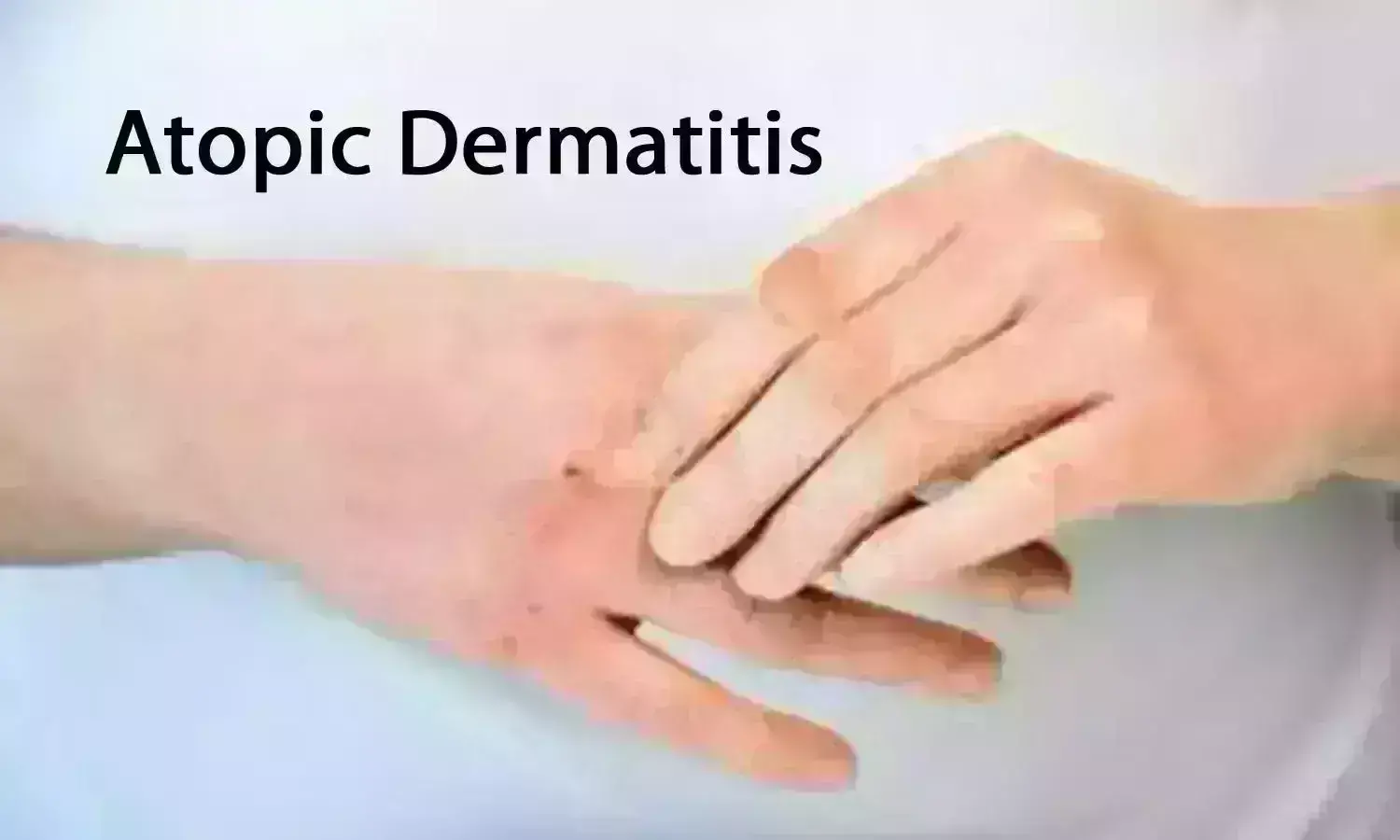- Home
- Medical news & Guidelines
- Anesthesiology
- Cardiology and CTVS
- Critical Care
- Dentistry
- Dermatology
- Diabetes and Endocrinology
- ENT
- Gastroenterology
- Medicine
- Nephrology
- Neurology
- Obstretics-Gynaecology
- Oncology
- Ophthalmology
- Orthopaedics
- Pediatrics-Neonatology
- Psychiatry
- Pulmonology
- Radiology
- Surgery
- Urology
- Laboratory Medicine
- Diet
- Nursing
- Paramedical
- Physiotherapy
- Health news
- Fact Check
- Bone Health Fact Check
- Brain Health Fact Check
- Cancer Related Fact Check
- Child Care Fact Check
- Dental and oral health fact check
- Diabetes and metabolic health fact check
- Diet and Nutrition Fact Check
- Eye and ENT Care Fact Check
- Fitness fact check
- Gut health fact check
- Heart health fact check
- Kidney health fact check
- Medical education fact check
- Men's health fact check
- Respiratory fact check
- Skin and hair care fact check
- Vaccine and Immunization fact check
- Women's health fact check
- AYUSH
- State News
- Andaman and Nicobar Islands
- Andhra Pradesh
- Arunachal Pradesh
- Assam
- Bihar
- Chandigarh
- Chattisgarh
- Dadra and Nagar Haveli
- Daman and Diu
- Delhi
- Goa
- Gujarat
- Haryana
- Himachal Pradesh
- Jammu & Kashmir
- Jharkhand
- Karnataka
- Kerala
- Ladakh
- Lakshadweep
- Madhya Pradesh
- Maharashtra
- Manipur
- Meghalaya
- Mizoram
- Nagaland
- Odisha
- Puducherry
- Punjab
- Rajasthan
- Sikkim
- Tamil Nadu
- Telangana
- Tripura
- Uttar Pradesh
- Uttrakhand
- West Bengal
- Medical Education
- Industry
Which systemic therapies good at improving index scores in moderate-to-severe atopic dermatitis?

A new meta analysis showed that Upadacitinib, 30 mg daily, and abrocitinib, 200 mg daily, were linked with somewhat better ratings than dupilumab, whereas upadacitinib, 15 mg daily showed similar scores as dupilumab in terms of safety in atopic dermatitis.
The findings of this study were published in the Journal of American Medical Association - Dermatology.
Systemic therapies for atopic dermatitis are largely examined in placebo-based trials; network meta-analysis can offer estimates of relative effectiveness and safety for treatments that have not been compared head to head. As a result, Aaron M. Drucker and his colleagues did this research. A live comprehensive review and network meta-analysis were conducted to evaluate claimed effectiveness and safety measures in clinical trials of systemic therapies for atopic dermatitis.
This investigation searched the Cochrane Central Register of Controlled Trials, Embase, MEDLINE, Latin American and Caribbean Health Science Information database, Global Resource of EczemA Trials database, and trial registries until June 15, 2021. After reviewing titles, abstracts, and publications in triplicate, randomized clinical studies assessing 8 or more weeks of therapy with systemic immunomodulatory drugs for moderate-to-severe atopic dermatitis were included. Data was collected in duplicate. Bayesian network meta-analyses were done, as well as assessments of the Grading of Recommendations Assessment, Development, and Evaluation certainty of evidence. From June to December 2021, the new analysis was done.
The findings of this study were as follow;
1. Since October 2019, 21 more studies have been added, bringing the overall number of trials to 60, with 16 579 people.
2. Abrocitinib, 200 mg daily, and upadacitinib, 30 mg daily, were linked with a somewhat lower EASI after up to 16 weeks of therapy in adults, slightly more than dupilumab, 600 mg then 300 mg every 2 weeks.
3. Baricitinib, 4 mg daily, Abrocitinib, 100 mg daily, baricitinib, 2 mg daily, and tralokinumab, 600 mg then 300 mg every 2 weeks, were all related with a lower EASI, but not as much as dupilumab.
4. Upadacitinib, 15 mg daily, and dupilumab showed little or no change. The results for POEM, DLQI, and PP-NRS followed a similar pattern.
In conclusion, In this systematic review and meta-analysis, abrocitinib, 200 mg; and upadacitinib, 30 mg daily, were associated with slightly better scores than dupilumab, and upadacitinib, 15 mg daily, was associated with similar scores to dupilumab. Abrocitinib, 100 mg daily, baricitinib, 4 mg and 2 mg daily, and tralokinumab, 300 mg, every 2 weeks were associated with slightly worse scores.
T plhe findings of this study might help doctors and patients appreciate the relative benefits of alternative treatment choices for moderate-to-severe atopic dermatitis.
Reference:
Drucker AM, Morra DE, Prieto-Merino D, et al. Systemic Immunomodulatory Treatments for Atopic Dermatitis: Update of a Living Systematic Review and Network Meta-analysis. JAMA Dermatol. Published online March 16, 2022. doi:10.1001/jamadermatol.2022.0455
Medical Dialogues consists of a team of passionate medical/scientific writers, led by doctors and healthcare researchers. Our team efforts to bring you updated and timely news about the important happenings of the medical and healthcare sector. Our editorial team can be reached at editorial@medicaldialogues.in.
Dr Kamal Kant Kohli-MBBS, DTCD- a chest specialist with more than 30 years of practice and a flair for writing clinical articles, Dr Kamal Kant Kohli joined Medical Dialogues as a Chief Editor of Medical News. Besides writing articles, as an editor, he proofreads and verifies all the medical content published on Medical Dialogues including those coming from journals, studies,medical conferences,guidelines etc. Email: drkohli@medicaldialogues.in. Contact no. 011-43720751


